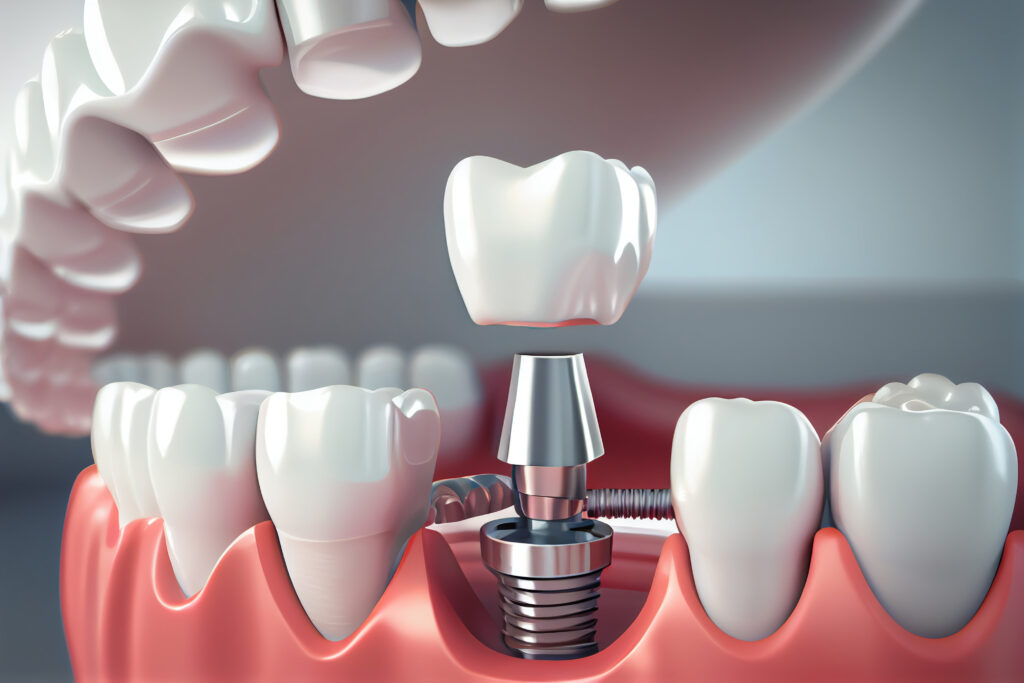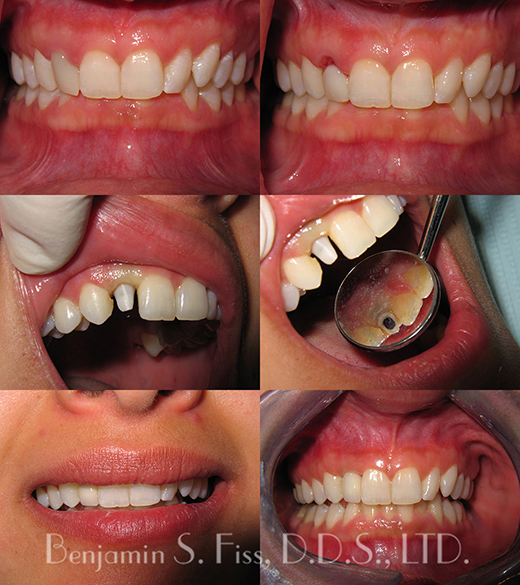Implants Dental Implants Holland MI - Dental Implants
Implants Dental Implants Holland MI - Dental Implants
Blog Article
Dental Implants Whole Mouth Muskegon Heights MI - What are dental Implants?
The success of dental implants is influenced by a number of components, some of the significant being bone density. Bone density refers to the amount of bone mineral content material present in a particular volume of bone, which Read Full Report is essential for providing a secure foundation for dental implants. When the bone is dense and wholesome, it supports the implants extra successfully, making certain each mechanical stability and long-term success.
Dental implants require adequate bone quality and quantity for proper osseointegration, a course of vital for the implant to bond with the bone. Insufficient bone density can compromise the success rate of an implant, resulting in potential failure. It has been proven that sufferers with lower bone density are at a better risk of implant complications, including mobility and infection.
Dental Implants Cost Grand Haven MI - Dental Implants - Conditions & Treatments
Bone density may be affected by a wide selection of elements, including age, hormonal status, dietary habits, and underlying medical conditions. As people age, bone density tends to decrease, making younger patients extra likely to have the dense bone wanted for successful implants. Osteoporosis, a common condition in older adults, considerably impacts bone density and might hinder the success of dental implants.
To determine the suitability of a patient for dental implants, dental professionals often conduct imaging studies similar to X-rays or computed tomography (CT) scans. These imaging strategies permit clinicians to assess the quality and amount of bone within the targeted area. Understanding a affected person's bone density is essential for planning the implant procedure successfully.
In instances where bone density is inadequate, several therapy options are available to boost bone quality. Bone grafting is among the commonest techniques used to extend bone density. This procedure involves transplanting bone tissue to the affected space, which allows new bone to develop and finally provides the required assist for an implant.
Dental Implants And Dentures Grandville MI - What are dental Implants? Types, procedures, and more
Another technique of addressing inadequate bone density entails using bone regeneration materials. These materials encourage the growth of latest bone while additionally offering a scaffold structure. This alternative can generally be used at the facet of bone grafting to improve outcomes.
The choice of implant design and placement method also plays a role in compensating for lower bone density. Shorter or wider implants might provide more stability in instances where bone density is suboptimal. Additionally, angled placements also can help utilize denser bone regions in the jaw, improving the chances of success for the dental implant.
Dental Implants And Dentures Wyoming MI - Dental Implants - Oral and Maxillofacial Surgery
It is essential for dental professionals to evaluate bone density completely before continuing with implant surgery. A complete assessment can information treatment choices and optimize outcomes. Preoperative communication with patients about their bone density standing also can manage expectations concerning the potential need for extra procedures.
Post-operative care also impacts the success of dental implants, notably in sufferers with compromised bone density. Implementing a solid maintenance plan that features common dental check-ups might help detect points early. Good oral hygiene practices are vital as properly, to forestall infections that could jeopardize bone health and implant stability.
Complications associated to low bone density can manifest as implant failure or peri-implantitis, an inflammatory condition affecting the tissues surrounding the implant. Early intervention and monitoring may help address these issues earlier than they escalate.
Overall, the impression of bone density on dental implant success can't be overstated. Patients considering dental implants ought to interact in discussions with their dental professionals to understand their bone health - Dental Teeth Implants Holland MI. Such conversations can result in tailored remedy plans that enhance the chances of a profitable consequence, ensuring affected person satisfaction
Dental Implants Jenison MI - Affordable Dental Implants
Addressing bone density challenges typically requires a multidisciplinary approach. Collaboration among dental surgeons, periodontists, and oral radiologists can improve therapy effectiveness. This comprehensive perspective allows clinicians to create individualized methods that accommodate various degrees of bone density.
In conclusion, the relationship between bone density and dental implant success is a critical side of implantology that dental professionals should think about. A thorough understanding of each affected person's distinctive bone traits can significantly affect the alternatives made relating to treatment. As analysis continues to develop, new materials and techniques are anticipated that will additional improve dental implant outcomes amongst sufferers with varying bone density ranges.

- Adequate bone density is essential for osseointegration, the process through which the implant fuses with the jawbone, ensuring stability and longevity of the dental implant.
- Low bone density can result in inadequate assist for implants, growing the danger of failure and potential complications during the therapeutic process.
Dental Implants Muskegon Heights MI - Get Dental Implants
- Individuals with osteoporosis may require special consideration, together with bone grafting procedures, to reinforce the quality of their jawbone before implant placement.
- Pre-implant assessments utilizing imaging techniques, similar to CBCT scans, can consider bone density and assist in treatment planning to optimize outcomes.
Implants Dental Near Me Walker MI - Multiple Tooth Dental Implants
- A larger bone density can facilitate using narrower or shorter implants, offering options for patients who could not have enough bone width or peak.
- Dental implants positioned in areas with compromised bone density usually necessitate extra surgical interventions, corresponding to sinus lifts or ridge augmentation, to create a steady environment for the implant.
- Post-operative follow-up and monitoring are essential for sufferers with low bone density to guarantee that any potential issues are addressed promptly.
- Research signifies that the density of surrounding bone affects the mechanical loading on dental implants, potentially influencing long-term success rates.
Dental Implants Near Me Walker MI - Guide to Dental Implants: A Popular Option for Tooth Replacement
- Choosing implants with floor modifications designed for enhanced attachment can profit patients with lower bone density by selling higher integration.
- A multidisciplinary method involving dentists, check out here orthopedic specialists, and nutritionists could provide complete care for patients with low bone density seeking dental implants.
What is bone density, and why is it essential for dental implants?
Dental Implant Holland MI - Affordable Dental Implants
Bone density refers to the amount of bone mineral in bone tissue. It is crucial for dental implants as a end result of greater bone density offers a more stable basis for the implant, reducing the chance of failure. Adequate bone density ensures correct integration of the implant into the jawbone.
How does low bone density have an result on dental implant success?
Low bone density can lead to inadequate help for the implant, increasing the chance of issues or failure. In such instances, the implant may not osseointegrate correctly, resulting in mobility or lack of the implant over time.
Dental Implant Dentures Grandville MI - Dental Implants Tooth Replacement
Can I still get dental implants if I even have low bone density?

Yes, dental implants can nonetheless be an possibility with low bone density. However, extra procedures, similar to bone grafting or the use of smaller implants, could also be needed to reinforce stability and help.
Implants Dental Implants Muskegon Heights MI - Dental Implants for Multiple Missing Teeth
What are the indicators of low bone density before considering dental implants?
Signs of low bone density can include increased tooth mobility, a historical past of fractures, and a discount in jawbone peak seen through imaging. Implants Dental Implants Muskegon Heights MI. A dental professional will evaluate these components to evaluate implant suitability
How can I enhance my bone density earlier than getting a dental implant?
Dental Implant Grandville MI - Affordable Dental Implants
Improving bone density can involve life-style modifications such as elevated physical activity, a balanced food regimen rich in calcium and vitamin D, and probably medication beneath a physician's steering. Consultation with a healthcare provider is really helpful to create an effective plan.
Is bone grafting a secure procedure for enhancing bone density? - Dental Implants And Dentures Holland MI
Denture Dental Implants Muskegon Heights MI - Multiple Tooth Dental Implants
Bone grafting is usually thought of protected and efficient for enhancing bone density. It entails transplanting bone tissue to the jaw to provide a suitable foundation for an implant. Risks exist however are minimal with correct planning and care.
What function does a dental skilled play in assessing bone density for implants?
A dental skilled conducts a thorough examination, including imaging studies like X-rays or 3D scans, to assess bone density. They determine the appropriateness of implants and advocate any essential therapies or procedures to boost success charges.
Full Mouth Dental Implants Muskegon Heights MI - Dental Implants - Oral and Maxillofacial Surgery
Are there particular dental implant types recommended for low bone density?
Yes, narrower implants or those with surface modifications could also be beneficial for patients with low bone density. These varieties can achieve higher stability in compromised bone conditions and promote profitable integration.
How long does it take for bone to heal after a graft before getting an implant?

Bone healing after grafting typically takes several months, usually round 4 to 6 months, before an implant may be positioned. This timeframe can differ based mostly on individual healing processes and the extent of the grafting carried out.
Dental Implant And Bridges Wyoming MI - Dental Implants - Benefits, Types, Cost
What should I focus on with my dentist regarding my bone density before dental implants?
Discuss your medical historical past, any signs of low bone density, and your considerations about implant success. Be open about medicines or conditions affecting your bone health, as this information will guide your dentist in planning your remedy successfully.
Report this page